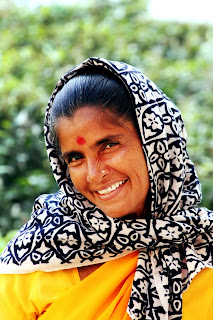7 Big Governance issues in India
Pratik Badgujar
6 minute read
Dr. APJ Abdul Kalam in his book "Vision 2020" envisioned India as a superpower by 2020. It does not take an expert to tell that we are still far far away from achieving that feat. In spite of almost 75 years of independence, we are still considered as a developing country and not a developed one. But what went wrong? In all these years of independence, India has achieved some remarkable feats and yet there are areas in which we have not performed so well. What is holding India back?
India is unique in many aspects. It is certainly quite different from western countries like the US, Europe etc. It is very difficult to implement textbook strategies in Indian conditions. Here are issues which make governance a difficult task compared to any other:
Diversity:
“Unity in Diversity” is what we all grew up with. India is truly unique due to the sheer number of languages, dialects, cultures, religions, climates it nurtures. This diversity is said to be our strength and yet this diversity itself is our weakness too. Diversity brings with itself a set of challenges unique to India.
This diversity brings a lot of administrative challenges with itself.
Weather conditions:
India has unique weather
conditions. It has regions like in Ladakh, J & K, etc. where the temperature
drops to negative zones and areas like that in Rajasthan where temperature
sometimes crosses 50ºC. For example, in Delhi, the winter temperature reaches even
less than 2ºC and in summer 45-46ºC is normal. This huge temperature difference
is a headache for product designers. So, an automobile company has while
designing a car has to design it in such a way that it can not just withstand
such a huge variation, but also should give the same performance across the
regions. You think it's easy? Not at all!
On the policy front, while
framing a national-level policy, the policy has to be applicable and suitable
to be applied to hilly regions of the northeast, arid deserts of Rajasthan, and plains
regions of the north. The policies must be sufficiently flexible to accommodate these variations without affecting policy objectives.
Economic Disparity:
India has huge economic
disparity. On one hand, there are people who struggle for food and on the other, we have Ambanis and Birlas of the world. Now naturally the expectations and
aspirations of such an economically diverse range of citizens vary. So, one
section of people wants bullet trains, the best internet speed, world-class
infrastructure, the other is barely being able to afford most basic health
facilities, good quality education. So, for any government, it's really difficult
to satisfy both types of demands simultaneously.
Inherited problems:
With independence came a lot of
problems too. We have a neighbor who doesn’t want us to prosper. And there is
another neighbor who is literally jealous of our progress. Apart from this,
many states are facing the issue of Naxalism which makes development in such
areas a challenging task. Economic disparity is another issue which India
inherited. When Pakistan was separated from the country, it was one of the most
irrigated parts. So, feeding its own population was a big issue in the initial years
of independence. From being the food grain imported to one of the largest food
grain producers, we have made significant progress on that front.
Many states were not willing to
join India and wanted to be independent. With the sheer hard work of Sardar
Vallabhbhai Patel, they acceded to be a part of India with certain special
concessions. These concessions sometimes act as hurdles towards developmental
efforts.
Misfired Education System:
In my view, this is probably one
of the biggest problems in India. Due to huge diversity, it is a big challenge to
implement centralized education policy. Even within states, there are at times
huge differences in culture, languages, etc. So, finalizing the medium of instruction,
syllabus, curriculum is challenging.
Our education system has been
more focused upon making us literate than educated. We are living in a highly
competitive world. Even after close to 75 years of independence, Indian
engineered goods fail to make a significant mark on the global platform. We are
still lacking far behind in areas of research and technological development. I
believe this is largely because the primary objective of imparting was to make us
literate. A student in our country is more focused on the money-earning potential
of his/her studies rather than the impact it could make.
Limited participation
from citizens:
India is the largest democracy in the world. In spite of this, the extent of participation of
cooperation from citizens also varies a lot. Many citizens don’t trust the government at all. The reasons vary from corruption, poor experiences to their
personal biases. While they may not be completely wrong they are not completely
correct either. It’s a chicken and egg situation. Some government officials are
corrupt and people stop trusting the government. Since they don’t trust, the government doesn’t get people’s participation in governance. It makes the implementation of any scheme, program,
policy a difficult task, and success rate reduced. At a low success rate, people find an excuse to further doubt the government, and the vicious cycle continues. There is no
easy solution to this.
Size Matters:
India is home to 130+ crore people. India ranks 2nd in population and 7th in terms of geographical area. This in itself is an asymmetry. The availability of land per person is lesser than in almost all developed countries. This puts huge pressure on our in-house resources. Due to the limited availability of resources, we cannot resort to reckless, non-sustainable development. US, Europe, Australia, and many other nations got 'developed' at huge environmental costs. In fact, it is due to that reckless development, that the world is on the verge of environmental catastrophe. So, any development strategy for India has to be sustainable as far as possible. This additional condition, increase the difficulty of governance too.
We need to acknowledge ourselves first that we are a unique country with no easy solutions even for problems that appear trivial. I believe it's wrong to label our governments as a complete failure or fully successful. It's like a gray area as of now.
In the last 73 years, India and Indians have surprised the world multiple times with their astonishing achievements. And it is probably because of that, the world looks toward India as a trustworthy friend, and a strong potential partner if not a superpower.
It is certainly true that there are many aspects of development in which we are lacking far behind other countries. If our governments had been absolutely bad, we would have ended up like poor African countries. I believe we as a nation are trying our best to overcome them as quickly as possible. We should never allow the use of these causes of difficulty as excuses for inaction.
Government alone can't be the pulling force of development. Our job as a citizen is to be rational and support governments for right steps and also strongly criticize for their misdeeds. It’s one of the most important ways in which we as the common man can contribute towards making India a Sone ki chidiya (Golden Sparrow) again…
Have you ever come across situations where you actually lauded Government for their phenomenal work? Let us know by commenting below or emailing us at simplewords48@gmail.com and we will share it with others through our next article with due credit.
Join our Telegram Channel "Daily Motivation" for a motivational or spiritual quote every morning. Click Here to join.





Shortcomings nicely pin limited. Still there are few more vital ssues left untouched, the goverment and people are bound to bear with.
ReplyDeleteThanks for your comment !
DeleteIn this article, I have tried to present those unique issues applicable specific to India. Other problems like poor governance, insufficient capacity and many others will be included later in some other article.
👌
ReplyDelete